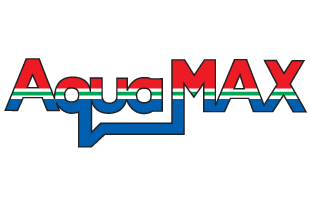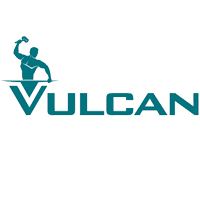Buyers Guide
Home / Buyers Guide
Hot Water System Buyers Guide
The Different Types of Hot Water Systems
There are 4 main types of hot water systems, each with their own advantages and disadvantages.
- Electric hot water system
- Gas hot water systems
- Solar hot water systems
- Heat pump hot water systems
Electric Hot Water Systems
These systems are probably the most well-known and have been around the longest. There are two kinds of electric hot water systems: continuous-flow and storage (off-peak or peak). We explain them more below.
Storage hot water system
Storage hot water systems are one of the most common types of electric systems. This unit utilises an insulated tank to keep water hot by using one or or sometimes 2 electric resistant elements in domestic situations
Tank sizes range greatly, anywhere from 50 litres to 400 litres, meaning you will need to understand your household hot water needs to determine what size best suits you. Unfortunately, once the hot water stored in the tank is emptied, your supply of hot water will run out until it is filled and heated once again.
While these systems generally have a less expensive initial outlay, ongoing running costs can be higher due to the system consistently using electricity to heat water. They also can be connected to off peak power tarifs when available that can be a bit cheaper as they only have power supplied during low periods like overnight
Continuous flow hot water system
As the name suggests, this system will provide you with continuous hot water. It works by heating copper pipes within the system and pushing hot water through these pipes whenever a hot tap is turned on. These hot water systems can be electric, or gas and you can adjust the heat to your liking. They are also perfect for small spaces due to their size, they are energy efficient and the best part, you will never run out of hot water.
While they can be more expensive to purchase initially, because this system doesn’t need to keep a store of water heated permanently, there is no continual energy input meaning good energy efficiency when not used BUT they do require 3 phase power to be able to supply uninterrupted hot water and 99.99% of homes will not have this connected and it can cost many thousands of dollars to do so, so this option is really not available or suitable for existing homes. Instant electric water heaters are being used more and more in new high density hi-rise housing as they require very little space
Gas Hot Water Systems
Similar to electric systems, you can choose between two kinds of gas hot water systems: continuous-flow / Instant and the storage tank type. The only difference within the systems themselves is the type of energy used to heat your water, and there are some things you should consider when it comes to pricing.
When purchasing a gas hot water system, your initial outlay will be higher than an electric system, however, your ongoing cost will be better. This is mainly due to the tariff for gas being less overall and more consistent throughout a day than electricity.
Gas hot water systems do need to be installed outdoors as proper ventilation is a key requirement, but if a flue is present or installed at the same time, they can be inside.
Solar Hot Water Systems
There are two requirements for solar hot water systems: a storage tank and at least two solar panels.
Solar hot water is 80-95% powered by the sun’s energy. Solar collectors or panels are placed on the roof and are used to heat water using this solar energy. The system then feeds this into a tank that is either stored on the roof or on the ground, depending on the type of collector. Solar tanks are generally quite large to allow for cloudy or rainy days and thats were the difference in the 80-95% of energy savings come from, the power usages during non solar gain periods
The initial outlay for a solar hot water system can be quite high but in an ongoing capacity, can save an average household 75-95% in hot water energy, depending on size and number of occupants within the home, not to mention the greenhouse gas emissions.
To counteract the possibility of running out of hot water if there is continually no sun, you can purchase a booster to help your tank heat the water. You can run this devise via either electricity or gas, and you can turn it on and off as you need.
It may also be worthwhile looking into the government incentives and rebates associated with some solar hot water systems and installations.
Heat Pump Water Systems
Not commonly used, but more efficient than a standard electric hot water system, heat pumps are used to move heat from one place to another. In fact, they work by extracting the heat from the air to warm up water stored in the system. While they do operate on electricity, they are about three times more economical than a conventional electric hot water system.
Due to their nature, heat pump water systems work better in warmer climates and need to be installed outdoors for ventilation purposes. It is important to note, these systems can be noisy.
It can be confusing trying to select a hot water system that’s perfect for your home or commercial space and with new technologies, new efficiencies and an ongoing list of new products, it’s no wonder. Are you better off with an electric hot water system, a gas hot water system or a solar hot water system? What size do you need? And should you get a booster or, wait, what’s a booster?
Yup, it’s pretty muddy, but that’s where we come in and we’re here to help.
Our Buyers Guide is created to help take the guess work out of your purchase by covering the following:
- How to calculate your hot water usage
- What size hot water system you will need
- The different types of hot water systems available
- What the most energy efficient hot water system is
- The general cost of installing a new hot water system
How to Calculate Hot Water Usage
While you won’t always be 100% accurate, calculating the estimated hot water usage for your household or building is pretty straight forward, with some statistical averages available to help you.
There are a few things that you will need to consider, and amounts will most likely varying depending on individual habits and lifestyle, as well as the equipment you have that utilises water.
When considering your hot water usage, there are five key things to include:
- How many people in your household?
- Are your showerheads water saving devices?
- How many baths does your household have each week?
- Do you use a dishwasher, or do you wash by hand?
- How much laundry do you do and what is the water capacity of your washing machine?
1. How Many People in your Household?
On average, a typical family of four uses anywhere between 125 to 315 litres of hot water per day. That’s a big range but gives you a good idea of the variances between people and lifestyles and, therefore, why it’s important to do your homework before purchasing a hot water system.
Let’s break this down a little more.
A very rough guide you can go by is that each person in your house will use between 60 and 115 litres of hot water per day. This range is also based on the type of hot water system you have. In Australia, the average household is 2.53 but this is a good way to calculate your average.
2. Water Saving Showerheads
Showering or having a bath can make up more than 60% of your hot water usage. One thing to think about when contemplating the number of showers you have and the average length of your shower is whether you have water saving showerheads in place.
Showers typically use between six and 25 litres of water per minute, with the best water saving showerheads only consuming nine litres of water per minute. Have a look at the table below to see how significant a water saving showerhead can be on your hot water consumption, as well as the length of your shower.

3. How Many Baths Are Taken in Your Household Per Week?
Running a bath can consume up to three times as much water as a shower, with the total typically falling between 70 and 200 litres of water. The amount of hot water used will depend on the size of the bath, the temperature and how full you fill it. One way to figure this out in your water consumption is to multiply the number of litres of your bath by the number of baths you and/or your family takes on a weekly basis. This may not be so simple if you don’t already know the litre capacity of your bath, but you might be able to find out online.
4. Using the Dishwasher vs Washing Dishes by Hand
You’d be forgiven for thinking that washing dishes by hand is more water efficient than using a dishwasher, but think again.
A full dishwasher that has 144 items to clean uses approximately 13 litres of water, but this will vary depending on the brand of dishwasher and its water rating. If you were to wash that same load by hand, you’d most likely need to refill your sink a few times, meaning you could use about 100 litres of water. Considering we’re most likely not washing 144 items every time we wash by hand, consider that the average sink in Australia takes anywhere from 15 litres to 45 litres to fill.
If you have a dishwasher, consider your dishwasher will use about 13 litres of water whether it’s full or not. If you wash by hand and you’re uncertain of the capacity of your sink, consider the median amount of 30 litres for the average sink.
5. Laundry & Hot Water Consumption
Some people use hot water when washing their clothes, others don’t. If you do, your hot water consumption will be higher and will therefore need to be considered in your overall usage. Interestingly, top loaders generally use more hot water than front loaders.
A standard warm cycle on a top loader is between 20 and 50 litres per wash. Once again, this varies depending on the water rating on your machine and, of course, the capacity of the machine. A front loader, however, may use between 15 – 20 litres per cycle.
What size hot water system you will need?
It’s important to consider everything possible when determining the size of the hot water system you will need, particularly to make sure your household has an endless supply of hot water. Take the time to calculate, or at least roughly estimate, each of the water consumption items listed above, but also consider the very rough guide below.
Household size Capacity
1 to 2 people 50 to 160 litres
2 to 4 people 80 to 315 litres
3 to 5 people 250 to 315 litres
5 or more people 315 to 400 litres
Based on an average family of four the following should be sufficient:
- Gas storage tank hot water system – 135 to 170 litres
- Gas instantaneous hot water system – 20 to 26 litre /pm
- Electric hot water system – 125 to 315 litres, depending on the electrical tarif your are connected to
- Solar hot water system – 300 to 400 litres (and 2x solar panels), the larger the tank the more free hot water in storage
- Heat pump hot water – 200 to 315 litres, some het pumps heat faster than others so don’t require larger storage tank sizes
Which type of hot water system is best for energy efficiency?
Unfortunately, there’s no straightforward answer to this question. There are many factors to consider when selecting a new hot water system, including the system itself, it’s size and individual factors such as household size etc.
Some systems, namely gas hot water systems, will share their energy rating by form of a visible sticker, which will help you identify the energy efficiency. Solar hot water systems don’t need an energy rating as they pull majority of their energy from the sun alone, unless you have a booster to support this.
Which hot water system is cheapest to run?
Solar hot water systems are the cheapest to run, however, they do have the largest initial outlay, depending on the number of people in your home and how many showers are taken each day, whether you like to take baths or have the occasional spa, or wash clothes in hot water, has a dishwasher that heats its own water, the payback time can be 2-5 years
Due to the nature of solar hot water systems and the fact that they rely on the suns energy means there is minimal impact on electricity or gas bills. It is important to consider a booster to help your system if sunlight is limited and to ensure you don’t run out of hot water. These boosters rely on electricity or gas to run, but generally they’re only used at limited times.
The initial expense comes from the equipment required to set up the solar hot water system accurately. You will require two solar panels or collectors, as well as a tank to capture and store the water. If you decide to get a booster, this comes at an additional cost also.
The amazing things about solar is there are many federal and local government rebates and incentives available to encourage people to choose this option, and this can greatly reduce your set up cost. You can find out more here – https://www.energy.gov.au/rebates
If solar isn’t possible, your next best option is to go for a gas hot water system. Once again, the initial outlay can be more expensive than an electric hot water system but in an ongoing capacity you’ll save on your energy bill.
What are the hot water system installation cost like?
It is very difficult to give a direct and specific answer on hot water system installation costs as it all depends on the system, your property and whether we are replacing an old system or installing a new one from scratch.
Below are a few options, with a general price guide included:
Scenario Cost Inclusions
Replacement of similar system Approx. $675 Four required valves
QBCC form 4
All electrical needs
Recycle old system
Replacing & moving a similar $1,100 – $2,100 As above
system All plumbing
Extra labour
New system installation $1,500 – $3,000 As above
Any extras
If you would like a tailored and accurate quote for your hot water system installation, please call Hot Water Supplies today and chat with one of our friendly staff on 1300 728 122. \







